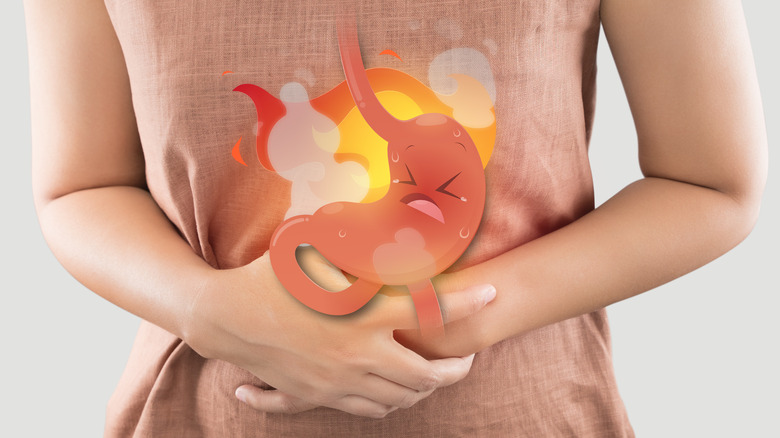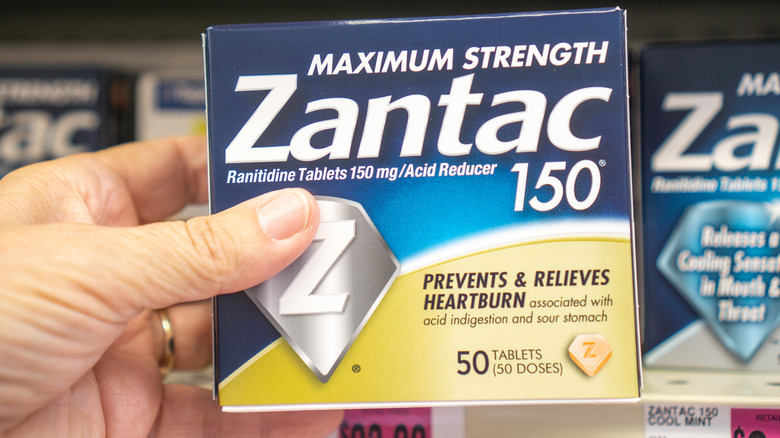This Is What Really Causes Acid Reflux
Do you ever feel a burning sensation in your chest? It may be heartburn, which is caused by acid reflux, and it often happens after eating. According to the American College of Gastroenterology, most people will experience heartburn at some point in their lives, and about 20% of people in the U.S. have been diagnosed with gastroesophageal reflux disease (GERD).
If you get heartburn more than twice a week, you may want to see your doctor to determine if you have GERD. Symptoms are frequent regurgitation and heartburn. For example, you may experience regurgitation if you feel your dinner coming back up in your chest. People with GERD might have both regurgitation and heartburn, or only 1 of those symptoms. In addition, you may also feel regurgitation in your throat and mouth (per the National Institute of Diabetes and Digestive and Kidney Diseases).
Occasionally having heartburn isn't usually a sign of a more serious health problem. However, it can indicate a heart attack if you have other symptoms like trouble breathing, swallowing, chest pain, or dizziness, according to Healthline. If you have heart attack symptoms, seek medical help as soon as possible.
If you are just experiencing the occasional heartburn, you may be wondering what causes acid reflux.
The cause of acid reflux
Acid reflux occurs when your stomach contents come back up from your stomach into your esophagus, causing heartburn. It results in an uncomfortable burning feeling in your chest. You're at risk for acid reflux if you smoke, you're pregnant, or you lie down too soon after eating. In addition, eating spicy foods and chocolate can increase your risk, as well as some medications. Additionally, caffeine and alcohol can cause acid reflux (via Healthline).
Food goes down your throat via your esophagus — a tube that connects to your stomach. At the stomach-esophagus connection, there's a valve called a cardiac sphincter. It opens to allow food and drink into the stomach, and then closes back up. Acid reflux happens when the cardiac sphincter doesn't close properly or opens when it's not needed. When your stomach contents rise back up into your esophagus, it irritates the lining, causing the burning sensation you feel in your chest.
You can prevent acid reflux by making a few changes. Wait 3 hours after eating before you lie down. Avoid foods and drinks that trigger acid reflux, and avoid overeating. Quit smoking, and avoid secondhand smoke. Finally, don't wear tight clothing around your waist (via WebMD).


